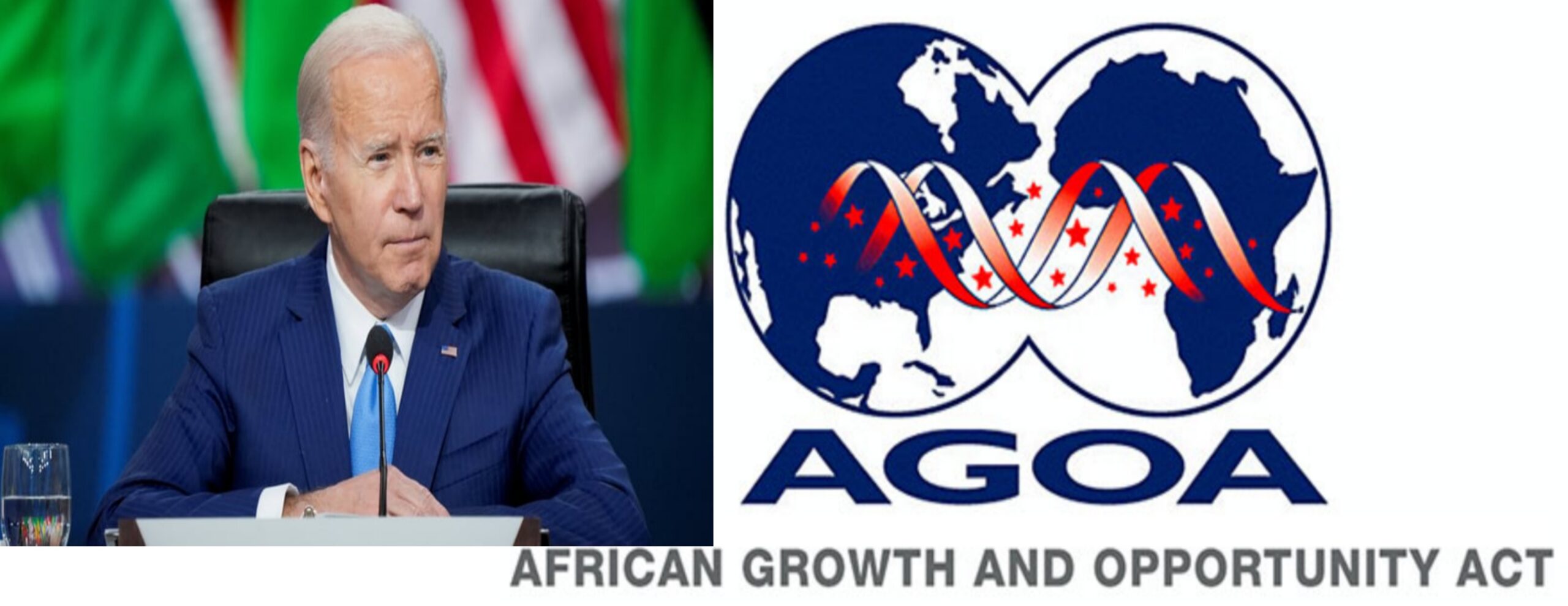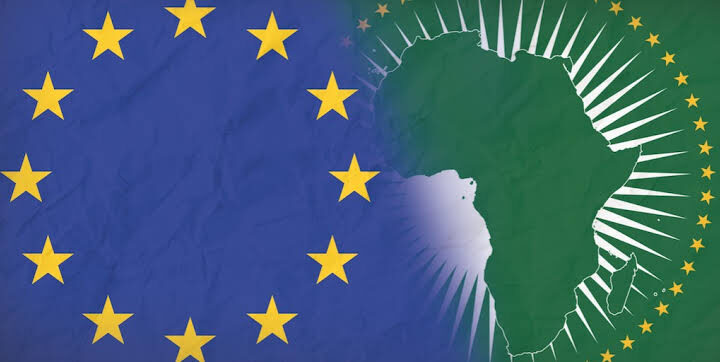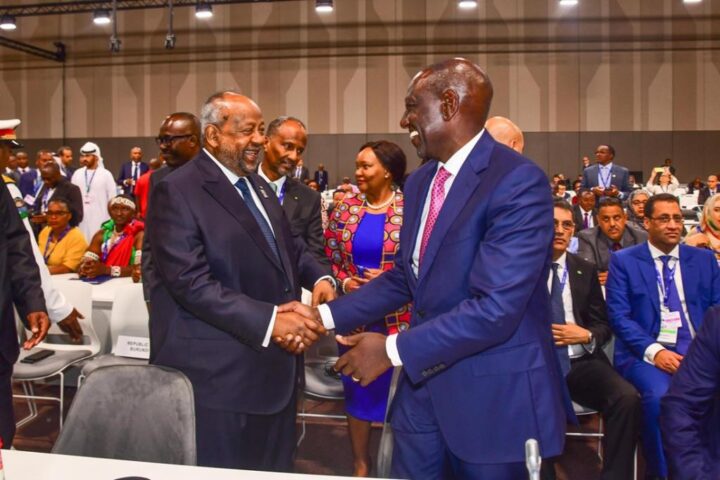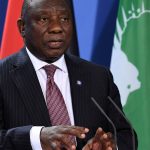Enacted by the United States Congress in 2000 to promote trade and economic cooperation between the United States and eligible sub-Saharan African countries, the African Growth and Opportunity Act (AGOA) has been in the news recently. This is not surprising as South Africa is due to host the 20th AGOA forum from Thursday this week. US President Joe Biden had on October 31 revealed plans to expel Uganda, Gabon, Niger and the Central African Republic (CAR) from the trade deal for either being involved in “gross violations” of human rights or not making progress towards democratic rule.
READ ALSO: Africa Must Break Internal Visa Barriers For Shared Prosperity – Editorial
Join our WhatsApp ChannelUganda is believed to be sanctioned for passing an anti-homosexuality law that imposes a death penalty on people found guilty of engaging in certain same-sex acts. The eviction does not bode well for the country as US data show that Uganda exported goods worth $174 million to America last year. Although Washington couched the suspension to be over “gross violations” of internationally recognized human rights, the Ugandan trade minister, Harriet Ntabazi, said such issues should be separated from trade. Sounding pliant, Ntabazi said, “Mistakes are human. If they have been done, reconsider and we go into negotiations. We’ve never had this chance to sit together and agree. Give us another chance.”
Last month, Ugandan President Yoweri Museveni disclosed that several US companies had already stopped importing textiles – which fall under the AGOA trade deal – from Uganda over the anti-homosexuality legislation passed in May. In an apparent retaliation, Museveni banned the importation of second-hand clothes from the United States. This was the same way it played out with Rwanda. Washington must be sensitive to the unintended consequences of some of the well-intentioned retaliatory trade measures on the populations of AGOA-eligible nations.
Aside from the threats to exclude Niger and Gabon from AGOA, Burkina Faso, Mali and Guinea have all previously been expelled from the deal following military coups in those countries. President Biden is serious about imposing the sanctions having written a letter addressed to the speaker of the US House of Representatives, stating that “despite intensive engagement between the United States and the Central African Republic, Gabon, Niger, and Uganda, these countries have failed to address United States concerns about their non-compliance with the AGOA eligibility criteria.”
These countries’ economies will certainly suffer the toll of being excluded from AGOA which has been credited with promoting exports, economic growth and job creation among participating countries. According to the United States government data, Uganda exported goods worth $174 million to America last year, while Gabon and Niger recorded US exports of $220 million and $73 million respectively in the same period. CAR, on the other hand, recorded $881,000 (£722,300) in US exports in 2022.
There is no gain in saying that AGOA, which was preceded by the 1974 US Trade Promotion Authority, has been of immense benefit to the African continent. Fourteen of the 54 AfCFTA member nations are currently designated by the US government as non-AGOA-eligible and non-beneficiary countries while 35 others are qualified for the accruable benefits. The programme made it possible for over $10 billion worth of African exports to enter the United States duty-free last year. In recent years, more than 80 per cent of duty-free non-petroleum AGOA exports, for example, have come from just five countries – South Africa, Kenya, Lesotho, Madagascar and Ethiopia. The textile and apparel sector in these countries witnessed significant growth, leading to job creation and the development of skills within the local workforce.
One of the key benefits that AGOA offers African nations is the ability to diversify their exports. Many African countries have historically relied on the export of primary commodities, such as oil, minerals, and agricultural products, leaving their economies vulnerable to price fluctuations and global market shocks. AGOA encourages diversification by providing duty-free access to a wide array of products, including textiles and apparel, agricultural goods, and manufactured items. This has brought about the situation where African countries develop new industries, create jobs, and reduce their dependence on volatile commodity markets.
READ ALSO: Nigeria Isn’t Broke – Editorial
Due to expire in September 2025, it is the accruable benefits of the deal that are making African countries already push for an early 10-year extension without any alterations that would trigger uncertainty. With the coming on steam of the African Continental Free Trade Area (AfCFTA) in 2019, Prime Business Africa believes the United States should use the AfCFTA as a framework for conversations with African nations about establishing a new strategic economic partnership. AGOA legislation should rather be strengthened to achieve AfCFTA’s economic integration, build SME capacity and achieve wealth creation goals.
While it is believed in some quarters that the trade deal is one means that the United States uses to checkmate the growing influence of China in Africa, Washington must realize that it is not only China it should worry about. In July 2023, Russian President, Vladimir Putin rolled out the red carpet for African leaders during the second Russia-Africa Summit in St Petersburg intended to shore up Moscow’s position in the continent.
Other players have continued making inroads into the continent. For instance, the BRICS bloc led by Brazil, Russia, India, China and South Africa is striving to shift the geoeconomic and geopolitical interests and landscape from a unipolar world dominated by the US to a multipolar world that strengthens the bargaining power and leverage of emerging market nations of Africa. In March 2023 some countries, including BRICS members China and India, launched separate projects to de-dollarise trade with various countries including the African nations Tanzania, Kenya and Uganda.
This week, the Arab-African and Saudi-Africa summits have been scheduled to be held in Riyadh, Kingdom of Saudi Arabia from the 10th to the 11th of November. The former promises to identify fields for cooperation, build a common vision for sharing knowledge and experience, and identify projects and frameworks for improving bilateral and multilateral ties between Arab and African countries. These changing dynamics should make Washington more amenable to the demands of African countries in their multilateral relations.
Africa must have come of age for her to be so widely wooed. The United States must therefore stop playing the headmaster in its relations with Africa. It is our considered opinion that AGOA should not be used to induce African countries to adopt American culture and values or deployed as a tool to witchhunt those who do not subscribe to them as is being done to Uganda. For all its many interventions in Africa, China has not made any significant effort to export communist ideology or any of its values in Africa.
AGOA should be structured in a manner that reflects equal opportunities and partnerships with African countries. This newspaper wants to see a more balanced volume of trade, even as we expect African industrialists to churn out high-quality products that can scale sound labour, environmental and quality standards. We also want to see a lot more African industrialists setting up shops all across the United States. AGOA should not only be extended to a fairly guaranteed duration but should offer benefits on a people-to-people basis and company-to-company level.
Enough of the continent being a mere supplier of raw materials when it should be a center of major industrialization, not low-skill services industries. Prime Business Africa expects to see the United States enter into additional trade instruments with African nations and domesticate the AfCFTA bill in a manner that would direct American trade representatives to develop a 10-year federal strategy that would promote free trade agreements (FTA) and practicalize joint ventures with African SMEs towards strengthening their manufacturing and production capabilities. It is unacceptable for only one African country – Morocco – to have entered into an FTA with the United States!

















![Gender Activism An Economic Necessity In Africa [PBA Editorial]](https://www.primebusiness.africa/wp-content/uploads/2023/11/vaw-720x480.png)

Follow Us